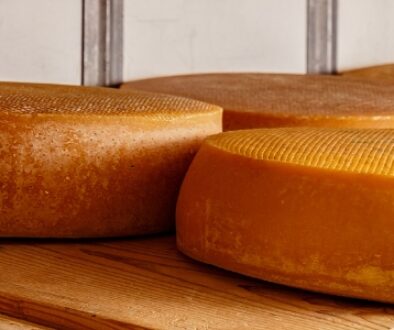Study: Dairy Imitators Confuse Consumers
Potato starch, coconut oil, and water pushed into a white block isn’t mozzarella cheese, which is why Follow Your Heart Mozzarella Style Slices and other non-dairy “cheeses” are finally under scrutiny.
FDA calls this food category “plant-based products manufactured to resemble dairy foods,” and the agency asked for public comments on these imitators last fall (2018). The FDA posed dozens of questions with the following goal: “We are interested in learning whether consumers are aware of and understand the basic nature, essential characteristics, characterizing ingredients, and nutritional differences between plant-based products and dairy foods.”
Wisconsin Cheese Makers Association, Edge Dairy Farmer Cooperative, and Dairy Farmers of Wisconsin partnered on a consumer research study this winter to discover the objective consumer data that the FDA is seeking.
National consumer research experts at Ravel surveyed 450 consumers identified as purchasers of dairy products, purchasers of plant-based foods that mimic dairy, or buyers of both. They asked these consumers about ingredients in real cheese vs. these plant-based products and about nutrients, protein content, overall nutrition, naturalness, and buying habits.
Study Results of Dairy Imitators
The study found that consumers are confused by these plant-based foods that borrow standardized words like cheddar and mozzarella and display terms like cheese alternative. Consumers are confused about what they’re buying, the nutrition they’re expecting, and the ingredients they never anticipated.
Here’s some findings Ravel reported from the study, now in the hands of FDA:
- One-quarter of consumers mistakenly indicated that pasteurized milk was present in plant-based foods that mimic cheese, and one-quarter don’t know what ingredients are in these mimics. The high prevalence of “don’t know” and mistaken responses perhaps indicates that the use of traditional dairy names, such as cheddar and mozzarella confuse consumers, leading to the selection of dairy ingredients in these plant-based foods.
- About one-third of consumers don’t know or think that plant-based cheese has higher quality protein, even though plant-based foods that mimic cheese have little to no protein content.
- Significantly more consumers indicate that they would buy one of the plant-based foods that mimic cheese because they are low in calories, low in fat, and contain no additives. In actuality, plant-based foods that mimic cheese contain an equal or comparable amount of fat and calories, and they contain substantially more additives than dairy cheeses.
- About half of consumers say plant-based foods that mimic cheese are actually cheddar or mozzarella cheese. Compared to the dairy cheeses, a significantly higher percentage don’t know if the plant-based foods are cheddar or mozzarella cheese. Together, these answers indicate more than half of consumers surveyed mistook a plant-based food mimicking cheddar or mozzarella to be traditional cheddar or mozzarella or were unclear about applying these traditional cheese names to plant-based foods.
FDA is America’s food policeman, and they uphold honesty and fair dealing consumers’ interests. A food is misbranded and prohibited from introduction into interstate commerce if it purports to be a food with a standard of identity and fails to meet that standard.
Foods described as mozzarella or cheddar made without dairy clearly fall outside of the federal standard set for these cheese names. Even worse, these foods confuse consumers who are expecting natural protein and calcium and are instead finding plant-based mimics with little or none of these essential nutrients.
Wisconsin Cheese Makers Association urges the FDA to fulfill its requirement to regulate honesty and fair dealing in foods and examine the misuse of standard dairy names. Almond, potato, and tapioca starch-based products are not cheese, and they are not cheddar, Havarti, or mozzarella. The deceptive labeling of these products must stop because consumers are being misled.
Keep up to date on current industry news here.
Source: CheeseMarketNews.com




